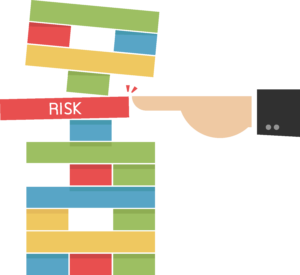Spending Money Wisely: A Beginner’s Guide for Kids
Money is an important aspect of our lives, and it is never too early to start learning how to manage it. Whether it’s receiving an allowance, doing chores for extra cash, or receiving monetary gifts on special occasions, kids have various ways of getting money. Therefore, it is crucial to teach them how to spend money wisely from a young age to avoid bad financial habits later on.
As a parent, teaching your child about money management can be a daunting task, but it is an essential life skill that can benefit them in the long run. While it may seem daunting, introducing basic money management concepts at an early age can help set a foundation for responsible financial behavior in the future. In this guide, we will provide some tips and tricks for teaching your kids how to spend money wisely.
The Importance of Money Management Skills for Kids
Money management is a critical life skill that everyone needs to have, regardless of age. Teaching kids about money management early on can help them make informed financial decisions, avoid debt, and live a financially stable life. Developing good money habits early in life can lead to a lifetime of responsible financial behavior, which is essential in today’s society.
Understand the Value of Money
It is essential to teach children the value of money and how to appreciate it. One way to do this is by giving them an allowance and encouraging them to save some of it. Children need to learn that money is a finite resource, and they must learn how to budget and prioritize their spending. When children are given an allowance, they learn the value of earning money, and they learn to make informed decisions about how to spend it.
Teach Them to Budget
Learning to budget is one of the essential money management skills that kids need to develop. The earlier they learn to budget, the better equipped they will be to manage their money effectively. One way to teach kids how to budget is by helping them set a savings goal, such as saving for a toy or a game. Encourage them to save a portion of their allowance each week, and once they reach their savings goal, reward them. This will teach them the value of setting goals and working towards achieving them.
Encourage Smart Spending
Teaching kids how to spend money wisely is an essential part of money management. Encourage them to think carefully before making purchases and to consider whether the item they want is a need or a want. Help them understand that they cannot buy everything they want, and they need to prioritize their spending. Teach them to compare prices and look for sales, and encourage them to consider buying used or refurbished items when possible.
Lead by Example
Children learn by example, so it is essential to lead by example and model responsible financial behavior. Be open and honest with your kids about money matters, and involve them in family financial decisions. Talk to them about saving for the future and the importance of avoiding debt. Encourage them to ask questions and be curious about financial matters.
Make Learning Fun
Learning about money management doesn’t have to be boring. There are plenty of fun and creative ways to teach kids about money. For example, you can use board games or online games to teach them about budgeting and saving. You can also encourage them to start a business or a lemonade stand to earn some extra money. These activities can help kids learn valuable money management skills while having fun at the same time.
Teach the Basics of Banking
Learning about banking is an essential part of money management. Teach your kids about the basics of banking, such as opening a savings account, depositing money, and earning interest. Show them how to use an ATM and how to check their balance online. These skills will help them become more financially independent as they get older.
Encourage Generosity
Teaching kids about money management isn’t just about saving and spending; it’s also about giving back. Encourage your kids to be generous with their money and to donate to charity or to help those in need. This will teach them the value of giving and help them develop empathy and compassion towards others.
Incorporate Real-Life Scenarios
It’s essential to incorporate real-life scenarios into your child’s financial education. For example, when you go grocery shopping, involve your child in the process of creating a shopping list and setting a budget. Teach them how to compare prices and make informed decisions about what to buy. When you pay bills, explain to your child what the bills are for, and how you budget for them. These real-life scenarios can help your child understand the practical application of money management skills.
Teach the Consequences of Poor Money Management
It’s important to teach children the consequences of poor money management. For example, if they spend all their allowance in one day, they will have nothing left for the rest of the week. Teach them about the dangers of debt and how it can impact their financial future. Explain to them the consequences of making impulsive purchases and not budgeting for their expenses. These lessons can help your child understand the importance of responsible financial behavior.
Encourage Saving for the Future
Teaching kids to save for the future is an essential part of money management. Encourage your child to save a portion of their allowance each week and to set long-term savings goals. For example, they could save for a college fund, a car, or a down payment on a home. Encourage them to track their progress and reward them when they reach their savings goals. These habits will help your child develop a sense of financial responsibility and plan for a secure future.
Start Small
It’s important to start small when teaching kids about money management. Begin by teaching them basic concepts such as saving, budgeting, and spending wisely. As they get older, you can introduce more complex topics such as investing, credit, and debt management. By starting small and building a strong foundation, your child will be better equipped to manage their finances as they grow older.
Teaching kids about money management is an essential life skill that can benefit them in the long run. By introducing basic money management concepts at an early age, you can help your child develop responsible financial behavior that will last a lifetime. Encourage them to save, budget, spend wisely, and be generous with their money. Lead by example and incorporate real-life scenarios into their financial education. By doing so, you’ll help your child develop the skills and knowledge they need to be financially independent and secure in the future.
Spending money wisely is a crucial life skill that kids must learn at an early age. With the help of FINSTART, kids can learn to manage their finances, create a budget, prioritize their expenses, avoid impulsive buying, save for the future, and even earn money. Teaching these skills to kids will set them up for a successful financial future, and empower them to make informed financial decisions.
The ABC’s of Money for Kids
Just as we use the alphabet “A for Apple” “B for Ball” etc. to teach our kids the English language, let’s also teach them the language of money using the ABCs of money.
A – ASSET

Assets are the things you own, and can be sold to get money.
B – BANK
A place that looks after people’s money, keeps it safe and lends money to people to help them buy things like houses.
C – CURRENCY

Consists of paper money and coins. It is the official money of a country. Each country has its own form of currency –
India – Rupee
USA – Dollar
United Kingdom – Pound
D – DEPOSIT

A deposit is when people put money IN the bank.
E – EARNINGS
The money people receive by doing any work is called earnings.
F – FINANCE

Management, creation and study of money.
G – GOODS

Things that people make or grow to sell. Like Toys, Laptops, Apple etc.
H – HEDGE

A plan to reduce risk.
I – INTEREST

A reward for saving and cost of borrowing.
J – JOINT ACCOUNT

A bank account, where money is shared by two or more people.
K – KYC

KYC means Know Your Customer. A process of verifying the identity of the customer.
L – LOANS

Money that people borrow from someone for a specific reasons with a promise to pay back.
M – MONEY

Money is what people use to buy things. Medium of exchange.
N – NEEDS

Things people must have to live.
O – OPPORTUNITY COST

When people give up something to do something else.
P – PROFIT

Income – Expenses = Profit
The money made by a business.
Q – eQuity

Represents ownership in a company.
R – RISK

A chance of getting hurt or losing something.
S – SAVING

The money people sets aside and decides not to spend.
T – TAX

A sum of money that people pay to the government for the services provided by the government.
U – UNBANKED

When a person does not have or use a bank account.
V – VALUATION

The process of determining the worth of an asset.
W – WANTS

Things that are nice to have but not necessary to survive.
X – eXpense

The money spent to purchase things.
Y – YIELD

The extra money people make by investing their money.
Z – ZERO BALANCE ACCOUNT





